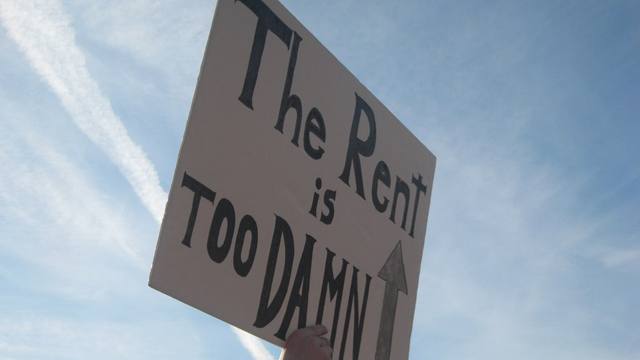BillMoyers.com is proud to collaborate with TalkPoverty.org as we focus on poverty coverage over the next two weeks. Every day, visit BillMoyers.com to discover a new action you can take to help turn the tide in the fight against poverty.
Since the foreclosure crisis in 2008, the nation has gained more than four million renting households, and demographers expect an additional four million households to become renters over the next decade. At the same time, the homeownership rate has declined from nearly 70 percent to 64 percent.
Consequently, in addition to supporting the development and preservation of affordable rental housing, local policymakers should focus significant effort on improving renter protections. In a few jurisdictions, such as New York City, Washington, DC, and Los Angeles, CA, many tenants are protected by local laws that ensure that if they pay their rent and follow the other terms of their lease, they can make family plans without constant worry about needing to move or to afford steep rent increases. But in most of the country, particularly in Sunbelt states like Georgia, Arizona, Texas and Florida, landlords can raise the rent significantly with little notice or evict a tenant even if the rent check is just a few days late.
Additionally, federal, state and local sources should provide sufficient funding for civil legal aid, which is often the only affordable source of assistance for families experiencing problems with a landlord or rental property, such as an illegal eviction, inadequate heat or other utilities, or dangerous conditions in the home.
Finally, Congress should immediately renew the recently expired “Protecting Tenants in Foreclosure Act,” which since 2009 has given tenants whose landlords are losing their properties to foreclosure an opportunity to finish out their lease and make appropriate plans for the future.
To help ensure access to safe and affordable rental housing, ask your state and local representatives to support legal protections for renters, and ask your Congressional representatives to support federal funding for civil legal aid and to renew the Protecting Tenants in Foreclosure Act.





